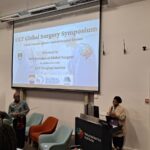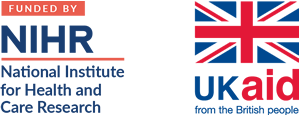POETIC-Africa: Provision of Essential Treatment in Critical Illness in Africa - Phase 1
Phase 1: ACIOS - African Critical Illness Outcomes Study
Exploring the vital links between critical illness, the provision of essential care and mortality rates in Africa
The lack of critical care is an important driver of deaths following surgery. Critical illness, most commonly due to haemorrhage and infection (sepsis), affects between 30-45 million adults globally each year, more than half of who are surgical patients.
The aim of this project is to investigate the essential care of critical illness in hospitals in Africa.
Numbers Speak For Themselves
We will conduct the ACIOS study, a quantitative observational study of critical illness in 200 hospitals across Africa. With methods previously used in the APORG network, a rapid, efficient point-prevalence assessment will be carried out of all adult patients admitted to the hospitals. Local staff in each hospital will complete data collection on a single-day and then follow-up included patients for 7-days within a three-month study window. We will determine the proportion of hospital patients who are critically ill; the mortality associated with critical illness; the proportion of critically ill patients who receive Essential Emergency and Critical Care (EECC); the relationship between EECC provision and mortality; and the availability of resources in hospitals for EECC.
Progress
- Data analysis is ongoing for ACIOS
- The Statistical Analysis Plan has been completed
- We will be shifting the main focus towards our mixed methods studies (Phase 2)





